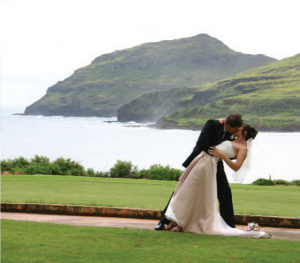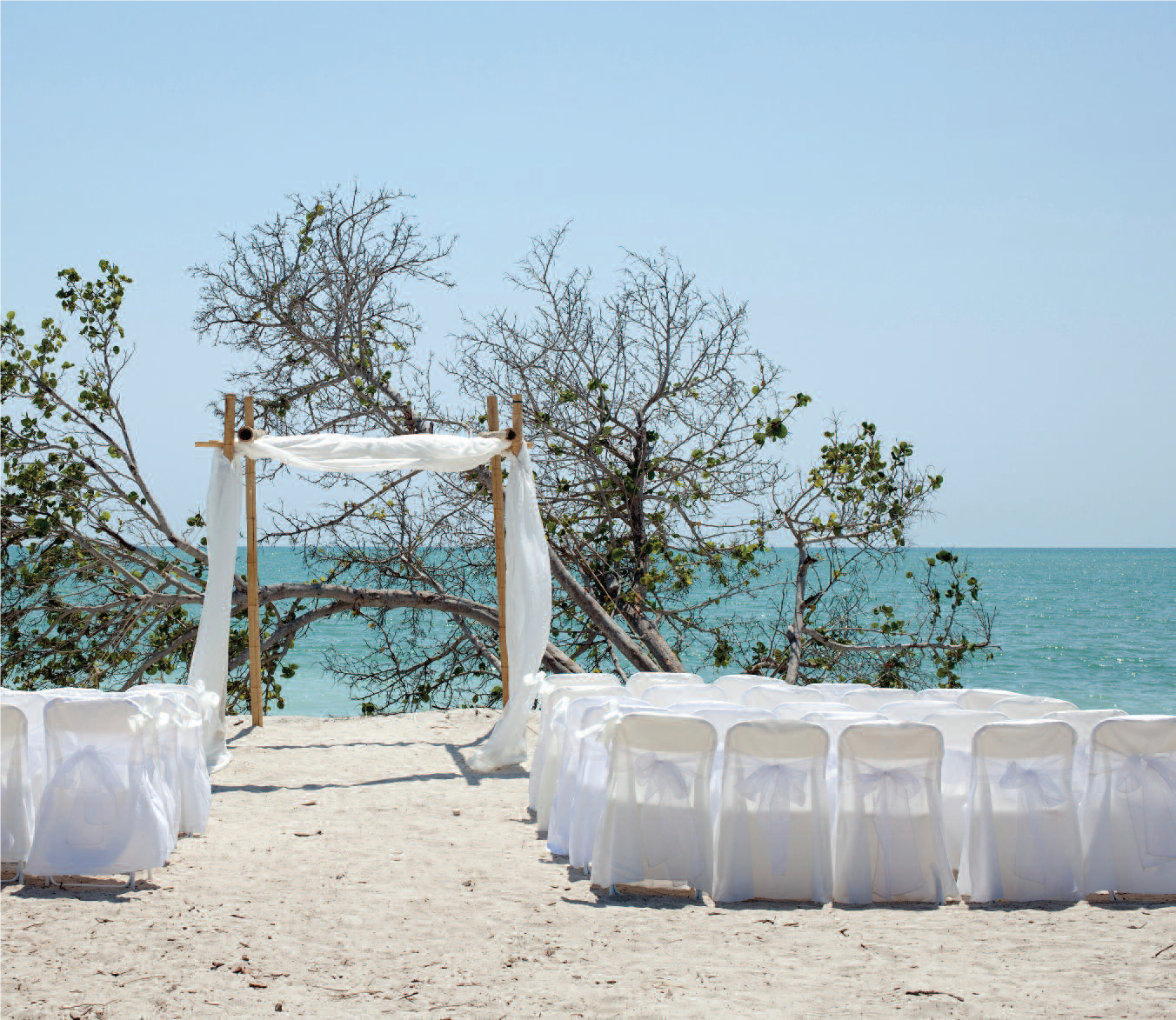The economy’s down. Flyaway weddings are up. What’s the deal?

Photo credit: iStockphoto/Thinkstock
Of all the decisions a soon-to-be-married couple must make, none are more exciting, stressful or complex than picking a place to make it all happen on that special day. It’s a Rubik’s Cube of timing, geography, family politics and culture, and expense. With increasing frequency, the solution many couples choose is to eschew local and start thinking global for a glamorous destination wedding. Where and why the betrothed decide to go depends on a long list of variables. It also says a lot about how modern society has evolved. Not all that long ago, when people tended to start families and careers closer to home, relatively few weddings fit into the “destination” category. Today, that category comprises slightly more than half of all weddings. Let me explain. Technically speaking, a destination wedding is one that takes place outside the city where a couple currently resides, or where either soon-to-be spouse grew up. So two people who grew up in Bergen County, live in Union County and work in Manhattan could have a wedding in Princeton and it would be considered a destination wedding. When the travel industry talks about destination weddings, it is referring to something a bit more exotic. These are the events held thousands of miles away, typically in spots where the happy couple intends to honeymoon. Guests who can afford the time and expense don’t depart the next day; they tend to make a vacation of it. These nuptial jaunts have become big business for hotel and resort chains stinging from the current economic swoon, and an important profit center for enterprising small hotel owners around the globe. Indeed, both groups have developed appealing packages that they market very aggressively through travel agents and wedding planners. At first blush, the steady growth of the destination wedding business may seem surprising in these trying times. That’s because, when the trend first gained mainstream momentum a decade or so ago, it had glamour and snob appeal. There is still that element, to be sure, but it is the tightening economy that has actually propelled the destination wedding business forward. The fact of the matter is that a destination wedding, if planned properly, is actually far more economical than a traditional marital event.
Appealing Numbers The numbers are easy to follow. A traditional wedding may generate 150 to 200 invitations with a regrets rate of 10 or 15%. Even watching every penny, by the time all the checks are written the price tag is likely to range between $25,000 and $50,000. Move that same wedding to a Caribbean resort or the Amalfi Coast and the guest list shrivels to around 30. Keeping them well fed and lubricated for a few days will cost less than half of the at-home wedding; most reports actually put that number as low as one-third. Plus, the happy couple is already in situ for their honeymoon. Among the other advantages of a destination wedding is that the bride and groom get to spend quality time in an exciting place with an intimate circle of guests. It’s like spring break for grown-ups. Indeed, in most surveys the percentage of couples that choose a destination wedding for an “intimate group” is actually slightly higher than the percentage that say they did so for an “exotic locale.” For the destination wedding guests there are advantages, too. Since about half of all guests have to travel a significant distance no matter where a wedding is held, it’s not asking a lot for them to journey a few extra miles or spend a few extra dollars. The real deal-breaker is timing. If guests can’t swing the vacation days or find adequate childcare, they have to say thanks but no thanks. But for those who have the time and money, a destination wedding doubles as an unforgettable getaway. It’s a win-win.

Photo credit: iStockphoto/Thinkstock
Where on Earth? A destination wedding can take place anywhere in the world, and can certainly happen in the United States. Miami Beach and Las Vegas, for example, rate high on the list of wedding destinations. Hawaii is also popular, especially with left-coasters. For New Jerseyans, the Hawaiian Islands have the additional advantage of further thinning out the guest list (it’s a really long flight). As a rule, the more popular destinations tend to involve water, beaches or a major city. Jamaica, with its many resorts, offers a lot of choices at different price points. Ditto for Mexico, where building along the Riviera Maya south of Cancun has been proceeding at a breakneck pace. Travel agents are also pushing Fiji (talk about a long flight!) and smaller spots in the Caribbean like Anguilla, which offer opportunities to explore neighboring islands. Another emerging hot spot for destination weddings is India. In many cases, Indian-born American-raised couples (or halves of couples) choose their wedding day not only to rediscover their heritage, but to immerse their non-Indian friends in a new culture. Many of the aforementioned places have become popular wedding destinations for another reason: They allow foreigners to tie the knot without suffocating them with paperwork or make them jump through ridiculous hoops. Every year, countless couples plan weddings in countries with quirky marital laws and don’t realize their blunder until they have started buying tickets and plunking down deposits. You may think a wedding in London sounds brilliant. Think again. The amount of red tape involved can be absolutely staggering.
Editor’s Note: An internet search for Destination Weddings will yield an endless stream of commercial web sites. They are fine to start with, but you may find unfiltered firsthand opinions to be more helpful. Many newlyweds blog about their destination weddings, and even more broadcast real-time details through social media web sites like Facebook.





